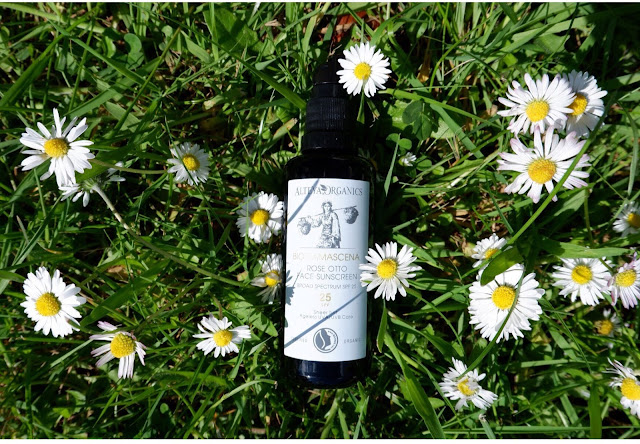As some of you may know if you follow me on my Instagram I was recently in Southern Italy. A bit of a change from my usual environment to say the least!
Taking care of our skin is so important day today but it is especially important when we go on holiday to hotter countries to take care of our skin. I am not always the best at this and often forget to put suncream on ending up with a red nose or odd straplines a screaming signal to the locals that I am British!
There has also been a lot of talk in environmental circles about the dangers associated with a lot of sunscreens that are being used and the chemicals that are in them. (Let me know if you would like a full blog post on this).
I personally moved last year to only using sun protection that was natural as my concerns grew about what was in some of the other products on the market. It was lovely this year to then be able to try out an organic suncream on my holiday from Alteya Organics. I wanted to try this as, mainly, it is a natural organic suncream for your face which is always the area I struggle with the most when I go on holiday.
Alteya Organics was founded in 1999 in Bulgaria as a family business and was born out of their family tradition to care for roses. This is something that I love, as family businesses are quite hard to find these days and that entrepreneurial spirit seems to become somewhat lost when a brand sells up to a larger conglomerate.
The suncream is lightweight and protects your skin while combatting the signs of ageing. The product can also be used as a lightweight day lotion for your face without leaving a thick sticky finish so you can also choose to wear under makeup (which I did). It also contains Acai and Sea buckthorn to sooth and enriches skin - while also acting as a source of antioxidants.
I enjoyed wearing this on holiday as I felt like it was moisturising as well as protecting my skin. My skin always goes really dry and tight in the heat and as the temperature rose to 33 degrees my skin did start to get painful. It was nice to have this to hand and provided some relief and protection for my delicate pale skin.
Click here to visit Alteyas site and buy the suncream or click here to read my post on what organic means and why it is important.







